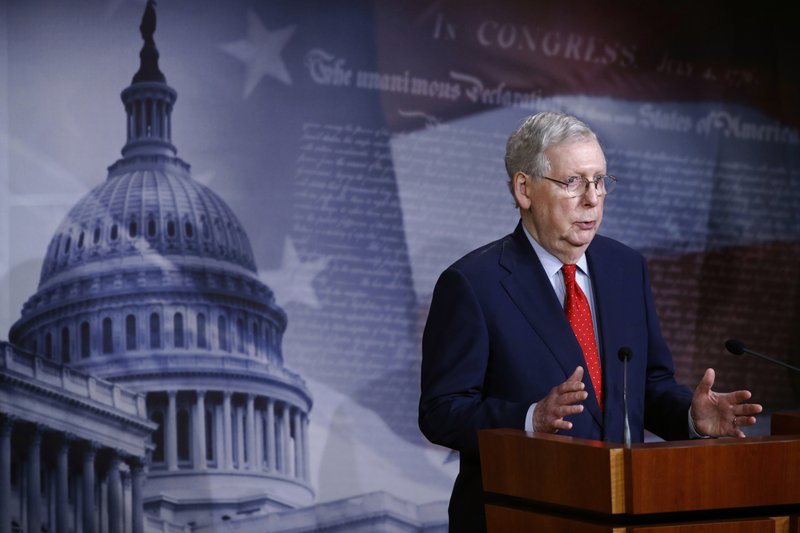Congress is sprinting to approve a $483 billion coronavirus aid package, as the White House and lawmakers begin scoping out the next rescue deal for health care providers and an economy battered by the crisis.
The House is expected to vote Thursday on the latest bill, already passed by the Senate, which would replenish a small-business payroll fund and pump more money into hospitals and testing programs. President Donald Trump has said he would sign it into law.
But the bipartisan effort, Washington’s fourth in response to the crisis, is not expected to be the last as lawmakers take unprecedented steps to confront the virus and prop up communities nationwide amid the health crisis.
House Speaker Nancy Pelosi said the next priority must “support our heroes” — the front-line city and state workers — as cash-strapped local governments stare down gaping budget holes.
“We have health care workers, transit workers, police, fire, EMS all kinds of public employees, who risk their lives to save lives and now lose their jobs,” Pelosi said after the Senate vote. “This is most unfortunate, and they cannot stand.”
Trump has said he was open to including fiscal relief for state and local government in another virus aid package along with infrastructure projects.
But Senate Majority Mitch McConnell said Wednesday that Republicans will be extremely reluctant to engage in more spending, particularly for the states.
“We all have governors who would love to have free money,” McConnell said on the Hugh Hewitt radio show. He added: “We’re going to push the pause button here.”
He also raised the possibility of changing federal law so that states could file for bankruptcy —something they are not now permitted. He said he would be willing to allow states facing red ink to file for bankruptcy protections so they can reorganize the way local municipalities are able to do.
Such a change appeared highly unlikely — and would present dire consequences for state vendors, bondholders and pension funds. Even if Congress changed the law, that would raise constitutional issues that would likely end up before the Supreme Court.
Given McConnell’s comments, it’s not clear how soon the next bill will be drafted, although Trump has signaled he wants discussions to begin as soon as Congress finishes the current legislation.
The Senate passed the bill unanimously on Tuesday, and the House is expected to pass it overwhelmingly in a roll call vote Thursday.
Most of the bill’s funding, $331 billion, would go to boost a small-business payroll loan program that ran out of money last week. There would be $100 billion for health care, with $75 billion to hospitals and $25 billion to boost testing for the virus, a key step in building the confidence required to reopen state economies. There is $60 billion for a small-business loans and grants.
What started as a Trump administration effort with Republicans to bolster the government’s small-business Paycheck Protection Program quickly doubled in size, second only to the nearly $2 trillion coronavirus rescue package that became law last month.
Democratic demands for additional funds for hospitals and virus testing in the states became more pressing, and eventually gained support from Republicans.
Of the $25 billion for increased testing efforts, at least $11 billion goes to state and tribal governments to detect and track new infections. The rest will help fund federal research into new coronavirus testing options.
Currently, the U.S. has tested roughly 4 million people for the virus, or just over 1% of its population, according to the Covid Tracking Project website.
While the White House says the U.S. has enough testing to begin easing social distancing measures, most experts say capacity needs to increase at least threefold, if not more.
The centerpiece of the deal remains the small-business payroll program. It provides forgivable loans so shops can continue paying workers while businesses remain closed for social distancing and stay-at-home orders.
Launched just weeks ago, the paycheck program quickly reached its lending limit after approving nearly 1.7 million loans. That left thousands of small businesses in limbo as they sought help.
Democrats highlighted the number of smaller and minority-owned shops missing out on the aid and number of publicly traded, big-name corporations also received loans.
As part of the new agreement, $60 billion or so has been set aside for — and divided equally among — smaller banks and community lenders, a nod to neighborhoods and rural areas underserved by banks.
(AP)











